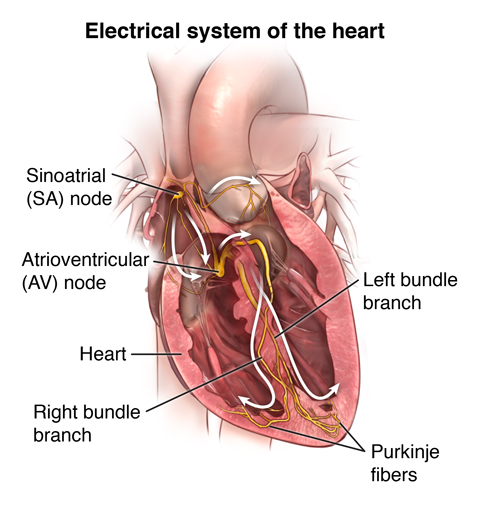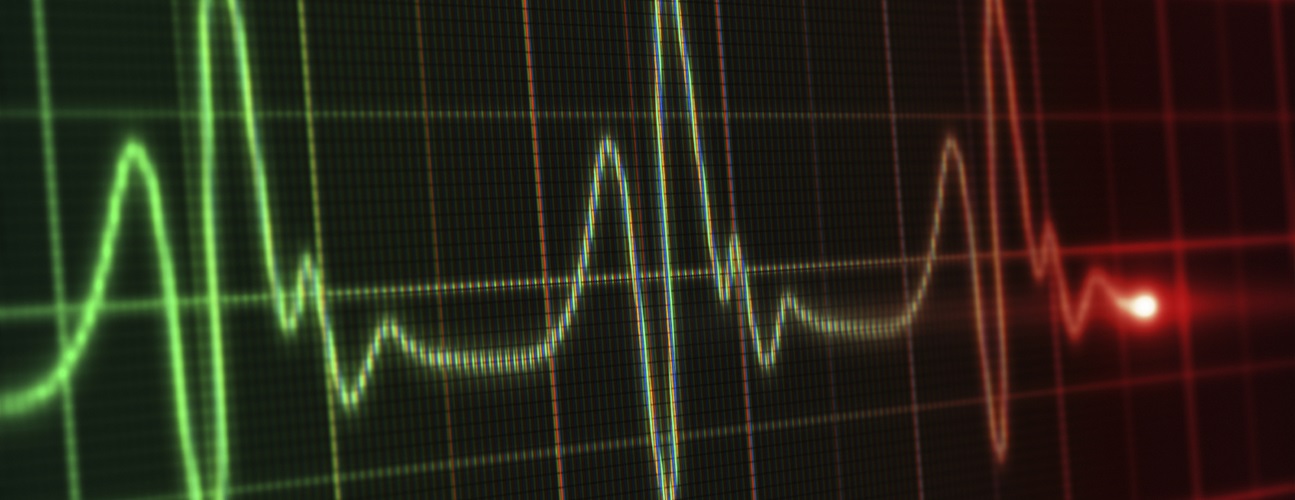Anatomy and Function of the Heart's Electrical System
The heart's electrical system
In the simplest terms, the heart is a pump made up of muscle tissue. Like all muscle, the heart needs a source of energy and oxygen to function. The heart's pumping action is regulated by an electrical conduction system that coordinates the contraction of the various chambers of the heart.

How does the heart beat?
An electrical stimulus is generated by the sinus node (also called the sinoatrial node, or SA node). This is a small mass of specialized tissue located in the right upper chamber (atria) of the heart. The sinus node generates an electrical stimulus regularly, 60 to 100 times per minute under normal conditions. The atria are then activated. The electrical stimulus travels down through the conduction pathways and causes the heart's ventricles to contract and pump out blood. The 2 upper chambers of the heart (atria) are stimulated first and contract for a short period of time before the 2 lower chambers of the heart (ventricles).
The electrical impulse travels from the sinus node to the atrioventricular node (also called AV node). There, impulses are slowed down for a very short period, then continue down the conduction pathway via the bundle of His into the ventricles. The bundle of His divides into right and left pathways, called bundle branches, to stimulate the right and left ventricles.
Normally at rest, as the electrical impulse moves through the heart, the heart contracts about 60 to 100 times a minute, depending on a person's age.
Each contraction of the ventricles represents one heartbeat. The atria contract a fraction of a second before the ventricles so their blood empties into the ventricles before the ventricles contract.
Stay on Top of Your Heart Health

If you have a new or existing heart problem, it's vital to see a doctor. Our heart health checklist can help you determine when to seek care.






